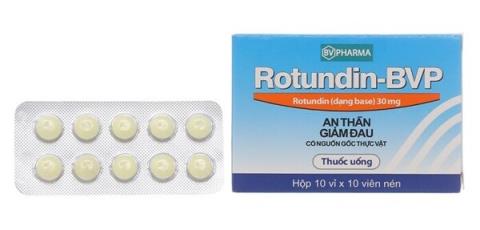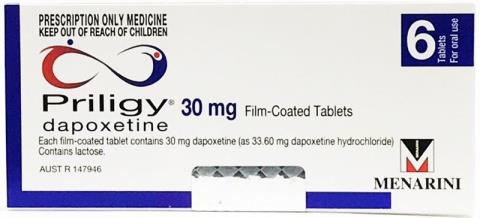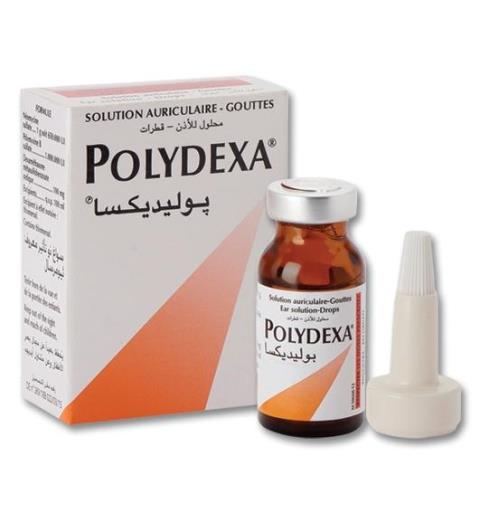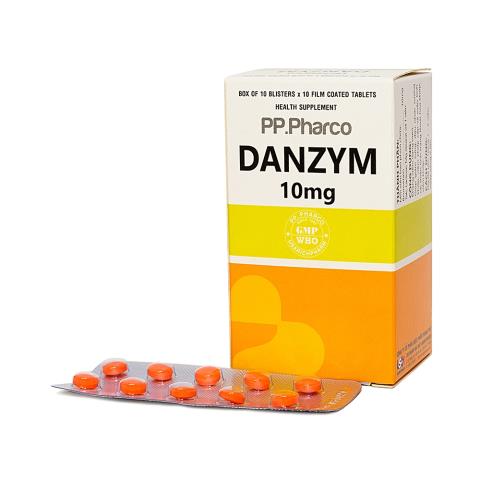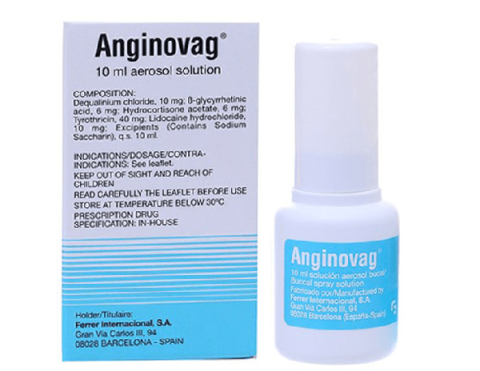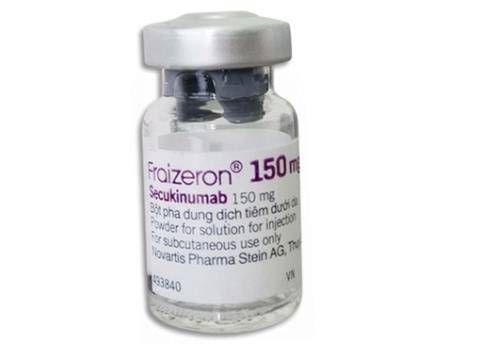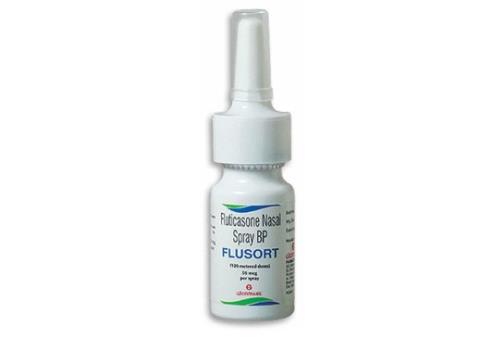What is Priligy (dapoxetin)? What is Priligy used for? What should be noted about possible side effects while taking the drug? Let's learn more about the drug Priligy with SignsSymptomsList in the article analyzed below!
Active ingredient : Dapoxetine.
Drugs with similar ingredients : Dapoxetine, Poxet, Durajet, ...
content
1. What is Priligy?
Ingredients in the formula Priligy
Active
- Dapoxetine (as hydrochloride salt)…………………….30 mg.
Excipients
- Lactose monohydrate;
- Microciystallin cellulose;
- Croscarmellose sodium sodium;
- Colloidal anhydrous silica;
- Magnesium stearate;
- Hypromellose, titanium dioxide, triacetin;
- Black iron oxide, yellow iron oxide.
2. Indications of the drug Priligy
Priligy is used to treat premature ejaculation in men between the ages of 18 and 64 with the following conditions:
- Persistent and recurrent ejaculation in the presence of minimal sexual stimulation, before during or shortly after penetration, before the patient's intention.
- Feelings of anxiety or discomfort as a result of premature ejaculation
- In addition, Priligy is also used to treat difficult to control ejaculation.
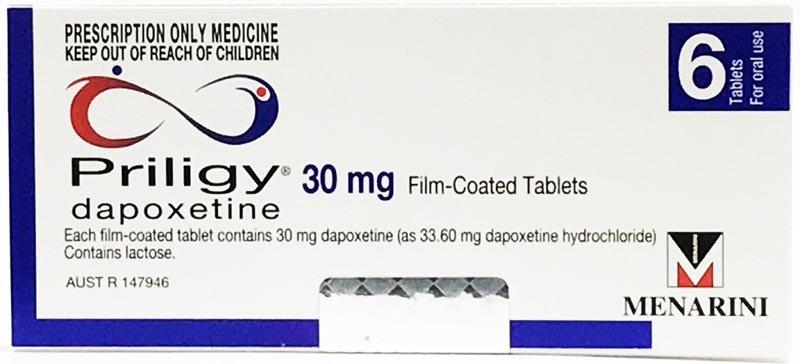
3. Cases where Priligy should not be used
- Allergy to dapoxetine hydrochloride or to any other excipients in the composition of the drug.
- The patient is in the following conditions
+ Has a chronic cardiovascular disease such as heart failure grade II-IV.
Untreated conduction disturbances.
+ Or the patient has a pacemaker, marked ischemic heart disease, chronic valvular disease.
- Priligy is contraindicated in patients with moderate to severe hepatic impairment.
- Not only that, do not use drugs to treat patients who have ever suffered from mania, bipolar disorder or major depression; Discontinue use if mental illness progresses.
4. How to use Priligy effectively?
4.1. How to use
- Priligy is taken orally.
- Note, swallow the tablet whole with plenty of water (drink a full glass).
- Care should be taken to avoid injury from fainting or some of the early warning symptoms such as sneezing, mild headache.
- It can be taken with or without food, that is, it can be taken on an empty or full stomach.
See also: How to overcome premature ejaculation: Using drugs and not using drugs .
4.2. Dosage
Dosage varies from person to person, depending on age and medical condition.
4.2.1. Men between the ages of 18 and 64
- Start with a dose of 30mg in all cases.
- Take the drug 1-3 hours before sex.
- Note, if the 30mg dose is not effective and the side effects are tolerable, the dose can be increased to a maximum of 60mg. The maximum dose when used regularly is 1 time / day.
See more: Premature ejaculation: Causes, symptoms and consequences .
4.2.2. Elderly people > 65 years old
- Safe and effective doses have not been established in people over 65.
- Therefore, caution should be exercised when using the drug in this group of people.
4.2.3. Target audience is children and adolescents
- Note, do not use drugs for subjects < 18="">
4.2.4. In patients with impaired renal function
- No dose adjustment is required in patients with mild to moderate renal impairment.
- However, Priligy should not be used in patients with severe renal impairment
4.2.5. For patients with impaired liver function
- No dose adjustment is required in patients with mild hepatic impairment.
- Caution should be exercised in subjects poor metabolisers of CYP2D6 and in patients receiving strong inhibitors of the CYP2D6 system when increasing the dose up to 60 mg.
5. Side effects
- Fainting such as loss of consciousness, decreased level of alertness, lethargy.
- Lower blood pressure while standing.
- Headache, dizziness, nausea, diarrhea, trouble sleeping and fatigue.
- The majority of adverse events leading to discontinuation of the drug were nausea.

- Tachycardia, bradycardia, or sinus arrest.
- Dilated pupils, sore eyes.
- Decreased ejaculation, male reproductive organ disorders, male genital irritation.
- Sleep disturbance, teeth grinding while sleeping, orientation disorder, ..
6. Interactions that occur when taking Priligy
- Monoamine oxidase inhibitors.
- Thioridazine.
- Drugs/herbs with sympathomimetic effects.
- Tramadol.
- L-tryptophan triptans.
- Linezolid.
- SSRIs, SNRIs.
- Lithium.
- St. John's Wort (Hypericum perforatum).
- Ketoconazole, itraconazole, ritonavir, saquinavir, telithromycin, nefazodone, nelfinavir and atazanavir.
- Erythromycin, clarithromycin, fluconazole.
- Verapamil and diltiazem.
- Fluoxetine.
- Tadalafil and sildenafil.
- Tamsulosin.
- Desipramine.
- Warfarin.
- Ethanol.
7. Notes when using Priligy
- Priligy should only be used in patients with premature ejaculation.
- Priligy should not be used in combination with other stimulants because of the increased risk of exposure to adverse effects.
+ Fast paced.
+ Increased body temperature.
+ Hypersympathetic syndrome.
+ Drowsiness and dizziness.
- Alcohol should not be used during treatment with this drug because drinking alcohol while taking this drug can increase the adverse effects on the nervous system and cardiovascular system such as fainting, thereby increasing the risk of accident.
- Note when using Priligy in patients with risk factors for cardiovascular disease.
- The drug can cause low blood pressure on standing with symptoms such as a mild headache when standing up. Therefore, to be safe, if you have this sign, you should immediately lie down or sit with your head between your knees until the signs pass. Do not get up suddenly, but get up slowly after lying or sitting for a long time.
- In addition, caution should be exercised when Priligy is administered concurrently to patients receiving vasodilators.
Some things to note when using Priligy
- The drug should not be used in patients with a history of emotional disturbances such as manic/manic depression or bipolar disorder . The drug should be discontinued immediately if any symptoms of these disorders appear.
- If the drug is discontinued when the patient develops convulsive symptoms and PRILIGY is not indicated in patients with a history of unstable epilepsy. Patients with controlled epilepsy should be closely monitored.
- The patient's psychotic depression should be thoroughly examined prior to treatment with priligy to rule out undiagnosed depressive disorder.
- Note that Priligy should not be used in patients with severe renal impairment and should be used with caution in patients with moderate to mild renal impairment.
- Priligy can cause eye disorders such as dilated pupils and sore eyes. Therefore, be careful when using the drug in patients with increased intraocular pressure or at risk of angle-closure glaucoma.
8. Special Uses
8.1. Driving and operating machinery
- Priligy medicine has caused symptoms of dizziness, inability to concentrate, fainting, blurred vision, drowsiness.
- Therefore, it is recommended that patients stay away from situations where an accident could occur, including driving or operating machinery.
8.2. Pregnant women and women who are breastfeeding
The drug should not be used by women
8.2.1. Pregnant women
- There is no evidence of teratogenicity or fetotoxicity in rats or rabbits at doses up to 100 mg/kg (rat) and 75 mg/kg (rabbit), respectively.
- At the same time, there is no evidence that dapoxetine use has an effect on a partner during pregnancy because of limited data. There are no controlled studies of dapoxetine in pregnant women.
See also: Is it safe to use drugs during pregnancy?
8.2.2. Breastfeeding Women
- It is not known whether Dapoxetine and its metabolites are excreted in human milk.
- Therefore, Priligy should not be used in this subject.
9. Treatment of an overdose of Priligy
- There have been no reports of Priligy overdose reported in clinical trials.
- In general, symptoms of overdose with selective serotonin reuptake inhibitors include serotonin-mediated reactions with symptoms such as
+ somnolence.
Digestive disturbances such as nausea and vomiting.
+ Tachycardia, palpitations, palpitations.
+ Dizziness.
- In the event of an overdose, supportive measures should be taken and symptomatic relief should be given to the patient.
- Note, there is currently no antidote for Priligy overdose.
10. What to do when you miss a dose of Priligy
- Use as soon as you remember that you have missed a dose.
- If the missed dose is close to the next dose. Skip the missed dose and follow the dosing schedule.
- Do not take a double dose to make up for the missed dose.
11. How to preserve
- Keep Priligy out of reach of children and pets.
- Store the medicine in a cool, dry place. Avoid exposure to direct light or keep the medicine in humid places.
- The best storage temperature is < 30="">
Above is the information on the use of Priligy. Call your doctor immediately if you have any unusual symptoms so that they can be treated and supported promptly!
Pharmacist Nguyen Ngoc Cam Tien
